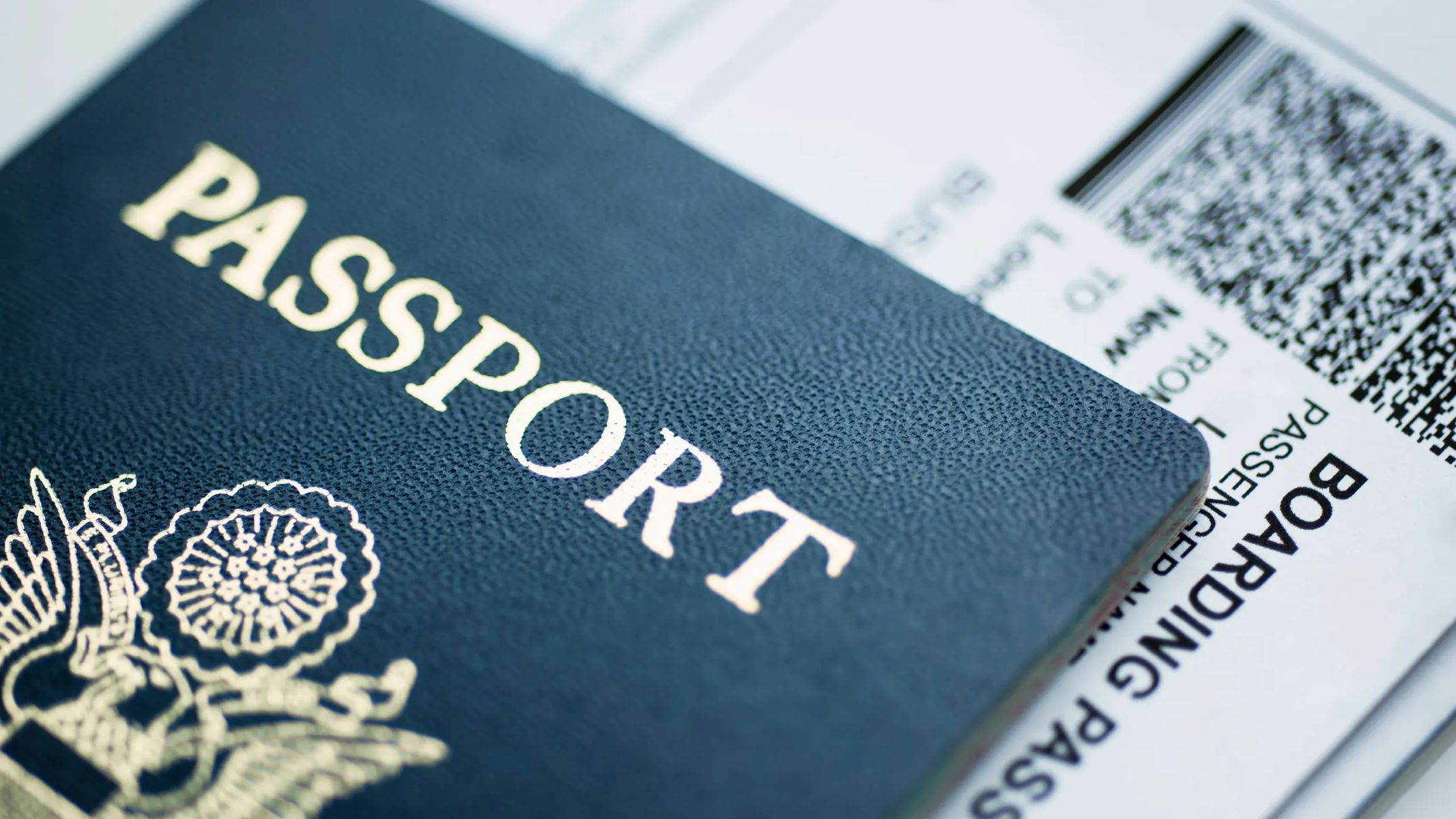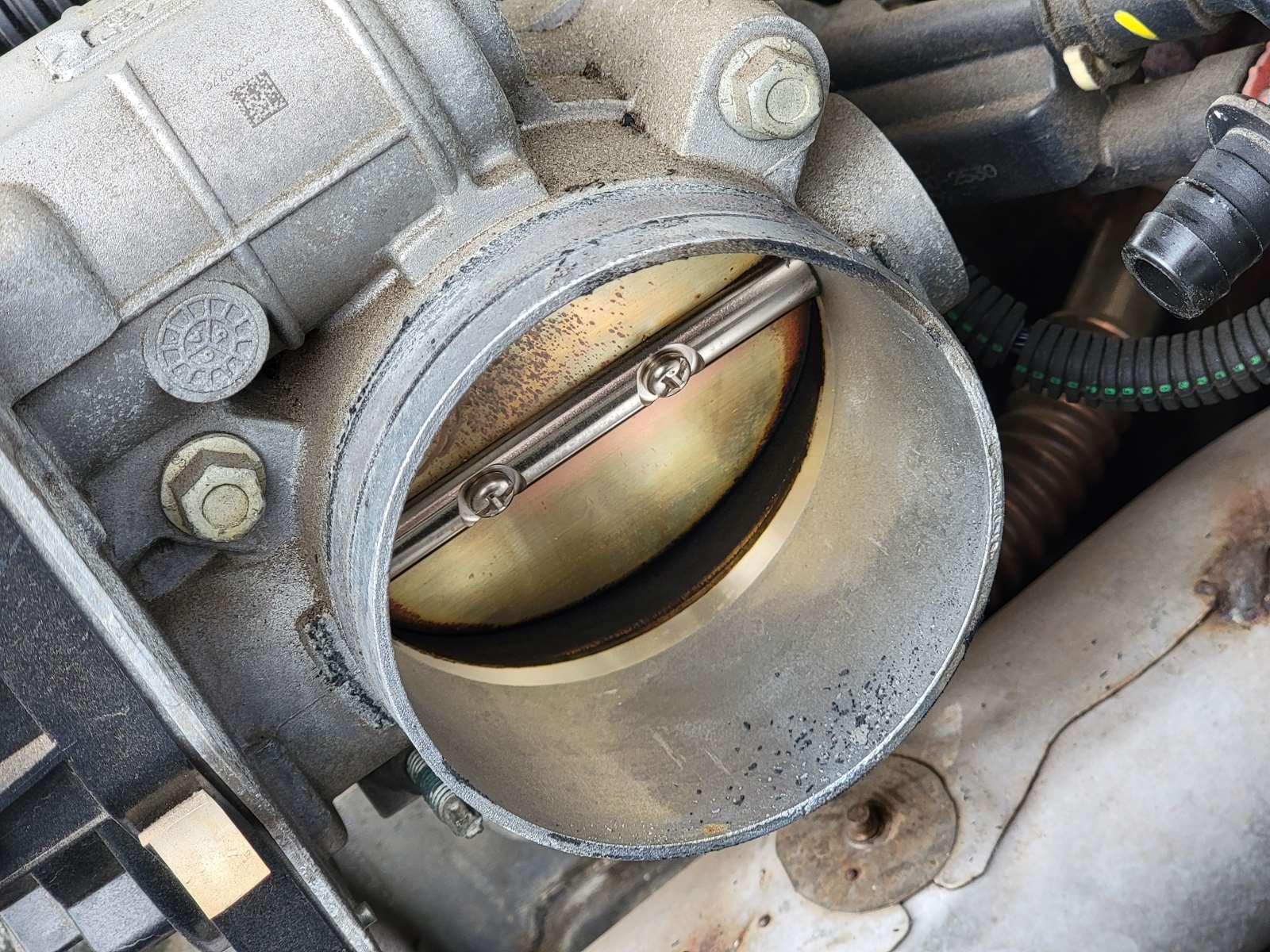Home>Automotive>Surprising Charges For Recovering Your Towed Car – You Won’t Believe What The Tow Yard Can Bill You!


Automotive
Surprising Charges For Recovering Your Towed Car – You Won’t Believe What The Tow Yard Can Bill You!
Published: February 17, 2024
Discover the shocking costs of retrieving your towed car and the unexpected fees that tow yards can impose. Learn what to expect in automotive towing charges.
(Many of the links in this article redirect to a specific reviewed product. Your purchase of these products through affiliate links helps to generate commission for Regretless.com, at no extra cost. Learn more)
Table of Contents
Introduction
Towing your car can be a stressful experience, whether it's due to a breakdown, an accident, or a parking violation. While the immediate concern is typically getting your vehicle to a safe location, the financial implications of towing are often overlooked until it's too late. Many car owners are shocked to discover the exorbitant charges associated with retrieving their towed vehicles. In this article, we'll delve into the surprising fees that tow yards can bill you, shedding light on the often-unexpected costs that can add insult to injury in already stressful situations.
Whether your car was towed due to a fender bender, a mechanical failure, or a parking violation, the financial aftermath can catch you off guard. Understanding the breakdown of towing fees and associated costs is crucial for all car owners. By exploring the various charges that may await you at the tow yard, you'll gain valuable insights into how to navigate these unexpected expenses and potentially avoid them altogether.
Towing fees can vary widely depending on your location, the reason for the tow, and the specific tow company or impound lot involved. By uncovering the common charges and potential add-ons, you'll be better equipped to anticipate and mitigate the financial impact of having your car towed. Additionally, we'll provide practical tips for avoiding surprise charges and minimizing the financial burden of retrieving your vehicle from the tow yard.
As we delve into the details of towing fees and related expenses, it's important to approach the topic with a proactive mindset. Being informed about the potential costs and pitfalls of the towing process empowers you to make sound decisions and take proactive steps to protect your finances. Whether you've already experienced the shock of unexpected towing charges or simply want to be prepared for any future incidents, this article will equip you with the knowledge and insights you need to navigate the often murky waters of towing fees and associated expenses.
Understanding Towing Fees
Towing fees encompass a range of charges associated with the process of transporting and storing your vehicle after it has been towed. Understanding the breakdown of these fees is essential for car owners to anticipate and manage the potential financial impact of having their vehicles towed.
-
Basic Towing Fee: This fee covers the cost of physically towing your vehicle from its location to the impound lot or designated area. The amount can vary based on the distance traveled, the type of vehicle, and the towing company's pricing structure.
-
Mileage Charges: Some towing companies factor in the distance traveled when determining the overall cost of towing. This can significantly impact the total fee, especially if your vehicle is towed over a considerable distance.
-
Special Circumstances: Depending on the circumstances surrounding the tow, such as adverse weather conditions, off-road recovery, or specialized equipment requirements, additional charges may apply. It's crucial to inquire about potential extra fees related to unique towing situations.
-
After-Hours Towing: If your vehicle is towed outside of regular business hours, you might face after-hours towing fees. These charges are often higher due to the inconvenience of responding to a tow request outside of standard operating hours.
-
Flatbed Towing: In cases where a flatbed truck is required for towing, the associated costs can be notably higher than traditional towing methods. Flatbed towing is often necessary for vehicles with specific mechanical issues or those that cannot be towed using conventional methods.
-
Towing Authorization: If your vehicle was towed at the request of law enforcement or property management, there may be administrative fees associated with obtaining the required authorization for the release of your vehicle.
By understanding the various components of towing fees, car owners can gain insight into the potential costs they may encounter when retrieving their towed vehicles. This knowledge enables individuals to make informed decisions and take proactive measures to manage the financial implications of towing. It's essential to be aware of the specific factors that can contribute to the overall towing fees, allowing for better preparation and potential cost-saving strategies.
Storage Fees
Storage fees are a significant component of the overall cost of retrieving a towed vehicle. Once your car has been towed to an impound lot or storage facility, daily storage fees begin to accrue, adding to the financial burden of the towing process.
Upon arrival at the storage location, it's essential to inquire about the daily storage rate, as this can vary widely depending on the specific facility and its policies. Typically, storage fees are calculated on a daily basis, and the accumulated charges can quickly escalate if the vehicle remains in storage for an extended period.
The duration for which your vehicle incurs storage fees varies based on the impound lot's operating procedures and local regulations. Some facilities may start charging storage fees immediately upon arrival, while others may provide a grace period before the fees take effect. It's crucial to be aware of these policies to avoid unnecessary additional costs.
In addition to the daily storage rate, some impound lots impose maximum storage periods after which additional fees or consequences may apply. For example, if a vehicle remains unclaimed for an extended period, it may be subject to additional penalties or even eventual auctioning to recoup the outstanding fees.
Understanding the storage fee structure and the potential implications of prolonged storage empowers car owners to make informed decisions regarding the timely retrieval of their towed vehicles. By promptly addressing the towing situation and minimizing the duration of storage, individuals can mitigate the financial impact of storage fees.
Moreover, being proactive in reclaiming your vehicle can prevent the accumulation of unnecessary charges and alleviate the stress of dealing with mounting storage costs. It's important to factor in the storage fees when assessing the overall expense of retrieving your towed car, as these charges can significantly contribute to the total amount owed to the impound lot.
By staying informed about the storage fee policies and taking prompt action to retrieve your towed vehicle, you can effectively manage this aspect of the towing process and minimize the financial strain associated with storage fees. Additionally, being mindful of the storage duration and associated costs enables car owners to make well-informed decisions regarding the timely recovery of their vehicles from impound lots or storage facilities.
Understanding the impact of storage fees and taking proactive steps to address them is essential for navigating the financial implications of having your car towed. By being aware of the potential costs and consequences related to storage, car owners can approach the retrieval process with greater clarity and financial prudence.
Administrative Fees
Administrative fees are an often-overlooked aspect of the overall expenses incurred when retrieving a towed vehicle. These charges, which are separate from the basic towing and storage fees, encompass a range of administrative processes and documentation associated with the towing and impoundment of vehicles.
When reclaiming a towed car, car owners may encounter administrative fees for various services and procedures. These charges can include the processing of paperwork, documentation related to the tow, and administrative tasks essential for releasing the vehicle from the impound lot or tow yard. It's important to note that administrative fees can vary among different tow companies and impound facilities, adding an additional layer of unpredictability to the overall cost of retrieving a towed vehicle.
One common administrative fee is the cost associated with obtaining the necessary paperwork and documentation to reclaim the towed vehicle. This may involve administrative processing fees for the release of the vehicle, including the completion of requisite forms and the verification of ownership or authorization. Additionally, administrative fees can also encompass the documentation of the towing process, such as the preparation of towing reports and related paperwork.
Another aspect contributing to administrative fees is the processing of payment and financial transactions related to the towing and impoundment. This can include administrative charges for handling payment methods, issuing receipts, and managing the financial aspects of the vehicle retrieval process. Car owners should be aware of these potential fees and factor them into their overall budget when preparing to retrieve their towed vehicles.
Moreover, administrative fees may extend to the coordination and communication involved in the release of the towed vehicle. This can encompass the administrative costs associated with coordinating with law enforcement, property management, or towing company representatives to facilitate the proper release of the vehicle. These administrative tasks are essential for ensuring a smooth and compliant retrieval process, but they can contribute to the overall expenses incurred by car owners.
Understanding the potential administrative fees and their implications is crucial for car owners preparing to reclaim their towed vehicles. By being aware of these charges and factoring them into the financial considerations, individuals can approach the retrieval process with greater clarity and preparedness. Proactively inquiring about administrative fees and seeking transparency regarding their applicability can empower car owners to make informed decisions and minimize the financial impact of administrative charges when retrieving their towed vehicles.
Impound Fees
Impound fees constitute a significant component of the overall expenses associated with retrieving a towed vehicle. When a car is towed and subsequently impounded, various fees and charges come into play, adding to the financial burden faced by the vehicle owner.
One of the primary components of impound fees is the initial impoundment charge. This fee, often incurred upon the arrival of the towed vehicle at the impound lot, covers the administrative and logistical processes involved in accepting and securing the vehicle within the impound facility. The initial impoundment charge can vary depending on the impound lot's policies, the duration of impoundment, and the specific circumstances surrounding the tow.
In addition to the initial impoundment charge, daily impound fees accrue for the duration that the vehicle remains in the impound lot. These daily charges can accumulate rapidly, particularly if the vehicle is not promptly reclaimed by the owner. It's crucial for car owners to be aware of the daily impound fees and the potential financial impact of prolonged impoundment, as these charges can significantly contribute to the overall cost of retrieving the towed vehicle.
Furthermore, certain impound lots may impose additional fees for specific services or circumstances. For example, if the impounded vehicle requires specialized handling or storage considerations, such as oversized vehicle accommodation or hazardous material containment, supplementary fees may apply. It's essential for car owners to inquire about any potential additional impound fees and understand the circumstances under which these charges may arise.
Moreover, some impound facilities may levy release fees when the vehicle is reclaimed by the owner. These release fees cover the administrative processes and documentation involved in releasing the impounded vehicle, including the verification of ownership, the completion of requisite paperwork, and the facilitation of the release procedure. Understanding the implications of release fees is crucial for car owners preparing to retrieve their impounded vehicles, as these charges contribute to the overall cost of reclaiming the towed car.
By gaining insight into the components of impound fees and understanding the potential charges that may apply, car owners can approach the retrieval process with greater clarity and financial preparedness. Proactively inquiring about impound fees and seeking transparency regarding their applicability empowers individuals to make informed decisions and take proactive measures to manage the financial implications of impoundment. Additionally, being mindful of the potential impact of impound fees enables car owners to navigate the process of reclaiming their towed vehicles with greater financial prudence and preparedness.
Read more: You Won’t Believe What Happens When You Drive Your Car With Only 5% Engine Oil Life Left!
Additional Charges
In addition to the fundamental towing, storage, administrative, and impound fees, car owners may encounter a range of additional charges when reclaiming their towed vehicles. These supplementary costs can contribute to the overall financial burden and come as unexpected surprises for individuals already grappling with the stress of having their cars towed.
One common additional charge is the fee for vehicle inventory or inspection. When retrieving a towed car, some impound lots may impose charges for conducting an inventory of the vehicle's contents or performing an inspection to document its condition. This fee is intended to cover the administrative and logistical processes associated with assessing the state of the vehicle and cataloging its contents, adding to the expenses incurred by the owner.
Moreover, some impound facilities may levy environmental or hazardous material fees if the towed vehicle contains substances or materials that require specialized handling or disposal. These charges are intended to offset the costs associated with managing and disposing of hazardous materials, ensuring compliance with environmental regulations and safety protocols. Car owners should be aware of these potential fees and factor them into their overall budget when preparing to retrieve their towed vehicles.
Additionally, car owners may encounter notification or communication fees related to the dissemination of information regarding the towed vehicle. This can include charges for notifying the owner of the vehicle's location, status, or impoundment details. These fees cover the administrative tasks and communication efforts involved in keeping the vehicle owner informed about the towing and impoundment process, contributing to the overall expenses incurred when reclaiming the towed car.
Furthermore, some impound lots may impose lien or redemption fees if the towed vehicle was subject to a lien process or legal proceedings. These charges are intended to cover the administrative and legal aspects of releasing a vehicle that was subject to a lien, providing compensation for the processes involved in redeeming the vehicle and resolving any associated legal matters.
By being aware of the potential additional charges and their implications, car owners can approach the retrieval process with greater financial preparedness and clarity. Understanding the range of supplementary fees that may arise when reclaiming a towed vehicle empowers individuals to make informed decisions and take proactive measures to manage the overall financial impact of towing and impoundment. It's essential for car owners to inquire about these potential additional charges and seek transparency regarding their applicability, enabling them to navigate the process of retrieving their towed vehicles with greater financial prudence and preparedness.
Tips for Avoiding Surprise Charges
-
Know the Parking Regulations: Familiarize yourself with the parking regulations in your area to avoid violations that could lead to your vehicle being towed. Understanding the specific parking restrictions and adhering to them can help prevent the surprise of finding your car towed due to a parking infraction.
-
Regular Maintenance: Stay proactive with your vehicle's maintenance to minimize the risk of unexpected breakdowns or malfunctions that could result in your car needing to be towed. Keeping up with routine inspections and addressing any potential issues promptly can reduce the likelihood of sudden towing situations.
-
Park in Designated Areas: When parking your vehicle, ensure that you are in a designated parking spot or area. Avoid parking in unauthorized zones, fire lanes, or areas with clear signage indicating towing enforcement. By parking in legitimate spaces, you can mitigate the risk of your car being towed due to improper parking.
-
Prompt Addressing of Violations: If you receive a parking violation notice, address it promptly to avoid escalating penalties and the possibility of your vehicle being towed. Taking timely action to resolve any parking infractions can help prevent the surprise of finding your car towed due to unresolved violations.
-
Stay Informed: Keep yourself informed about any changes in parking regulations or towing policies in your area. Being aware of updates and developments in local parking enforcement can help you adapt your parking practices to avoid potential towing situations and unexpected charges.
-
Secure Private Parking: Whenever possible, utilize secure private parking facilities to minimize the risk of your vehicle being towed from public areas. Utilizing designated parking spaces or secure parking facilities can reduce the chances of encountering surprise towing fees.
-
Retrieve Your Vehicle Promptly: If your vehicle is towed for any reason, make arrangements to retrieve it promptly to avoid incurring additional storage fees. Acting quickly to reclaim your towed car can help minimize the financial impact of storage charges and prevent the accumulation of surprise fees.
By following these proactive tips, car owners can reduce the likelihood of encountering surprise towing charges and unexpected expenses associated with retrieving their towed vehicles. Staying informed, proactive, and attentive to parking regulations and vehicle maintenance can significantly contribute to avoiding the financial surprises often associated with towing.
Conclusion
Navigating the process of retrieving a towed vehicle can be a daunting and financially taxing experience for car owners. The array of fees and charges associated with towing, impoundment, and vehicle retrieval can often come as unwelcome surprises, compounding the stress of the situation. However, by understanding the breakdown of towing fees and the potential additional charges, individuals can approach the process with greater clarity and financial preparedness.
It is crucial for car owners to be informed about the various components of towing fees, including the basic towing fee, mileage charges, after-hours towing costs, and potential additional fees for specialized circumstances. Understanding the impact of storage fees and being mindful of the potential implications of prolonged storage empowers individuals to make informed decisions regarding the timely retrieval of their towed vehicles.
Moreover, being aware of administrative fees and their implications is essential for car owners preparing to reclaim their towed vehicles. Proactively inquiring about administrative fees and seeking transparency regarding their applicability can empower individuals to make informed decisions and minimize the financial impact of administrative charges when retrieving their vehicles.
The significance of impound fees and potential additional charges cannot be overlooked. By gaining insight into these components and understanding the potential charges that may apply, car owners can approach the retrieval process with greater clarity and financial preparedness. Proactively inquiring about impound fees and seeking transparency regarding their applicability empowers individuals to make informed decisions and take proactive measures to manage the financial implications of towing and impoundment.
Additionally, by following proactive tips to avoid surprise charges, such as staying informed about parking regulations, addressing violations promptly, and retrieving towed vehicles promptly, car owners can reduce the likelihood of encountering unexpected expenses associated with towing.
In conclusion, being informed about the potential costs and pitfalls of the towing process empowers car owners to make sound decisions and take proactive steps to protect their finances. By understanding the breakdown of towing fees, storage fees, administrative fees, impound fees, and potential additional charges, individuals can navigate the often murky waters of towing with greater clarity and financial prudence. Staying proactive, informed, and attentive to parking regulations and vehicle maintenance can significantly contribute to avoiding the financial surprises often associated with towing.














